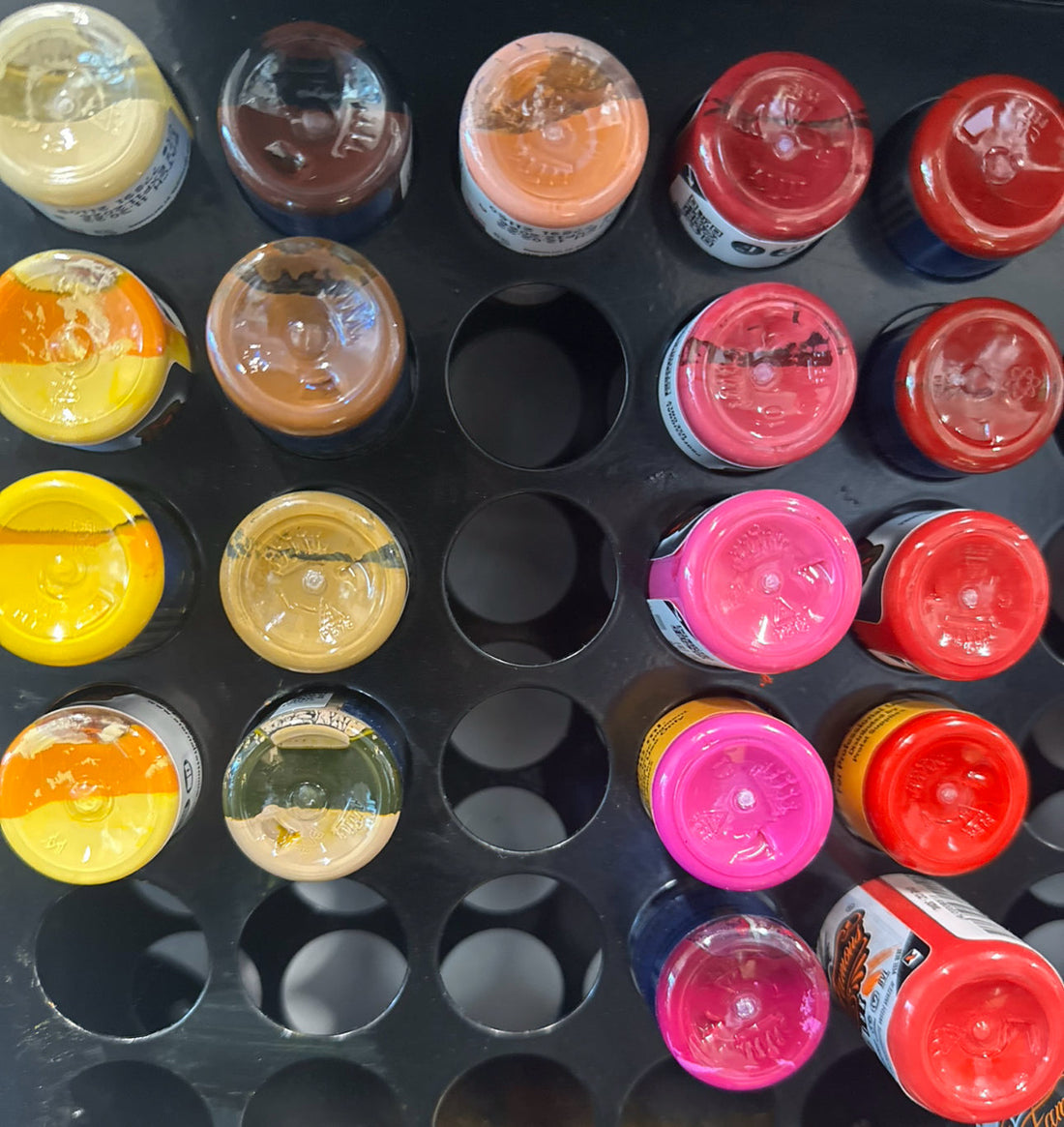
What's In Tattoo Ink: A Quick Guide
If you've ever wondered what tattoo ink is made of, you're not alone. Getting a tattoo is a huge deal; you're permanently marking your body with someone's art utilizing inks, so it's only natural to ask what is being put inside your skin, which is why we've got you covered with your guide to what tattoo ink is made of.
The ink used in tattoos consists of a combination of pigments and a carrier solution. Pigments give your tattoo colour, while the carrier solution keeps the pigments mixed evenly, allowing a smoother process of applying the ink to your skin.
A BREAKDOWN OF WHAT'S INSIDE THE INKS' COMPONENTS
Pigments, or the colour of your tattoo, can be made from several different sources, such as natural sources like plant extracts or henna, metal salts and oxides like titanium dioxide, iron oxide, manganese, and others, organic compounds, or carbon-based materials.
The career solution helps sterilise ink and prevents the pigments from clumping together. These include distilled water, glycerin, witch hazel, or isopropyl alcohol, along with additives like binders and anti-clumping materials to improve the ink's penetration into the skin.
Combining the pigment with a carrier solution allows the ink to flow smoothly into your skin, ensuring it's sterile and safe throughout the process of getting tattooed. This ensures that the tattoo stays vibrant and sharp for many years.
While this may sound daunting, industry-leading studios like Smoke and Mirrors and many others are known to use the highest-quality inks free of harmful substances, including vegan inks. This is also why we urge you to reconsider before carrying out any tattooing at home if you're purchasing ink. Many countries do not have any regulations around tattoo inks, and they can contain harmful chemicals when not purchased through reliable, reputable sources.
All professional inks are tested for safety concerns and to minimise the risk of allergic responses. This allows for better colour retention, cleaner lines, a more predictable healing process, and lowers the risk of complications.
We often hear some commonly asked questions that we wanted to address in case you have questions about tattoo ink of your own.
ARE SUBSTANCES IN TATTOO INK HARMFUL TO HEALTH?
Tattoos are performed in various ways all over the world. Some of these will be above hygiene standards using the correct protocol, while others, specifically "home jobs" or tattoos carried out by amateur artists at home, are at risk of both infection and unsafe ink practices.
Some inks may contain harmful metals, which can cause reactions in your skin and may include carcinogens. It's essential to look into the studio or artist you're considering using for your tattoo and check what types of ink they use and whether they're purchased from reputable sources that operate under strict guidelines.
HOW DOES TATTOO INK STAY IN THE SKIN?
So you've found your dream piece of art and are sitting down with the best tattoo artist in Brisbane, and then it hits you: How do tattoo inks stay in the skin after all? Don't worry—we've got you covered.
When you receive a tattoo, the ink gets injected into the dermis, which is the second layer of your skin. Pushing the ink to that second layer makes it permanent. This is the outcome of the tattooing process, where needles puncture the skin thousands of times to carry the ink through to the dermis. Moving forward, the outer layer of your skin will go through a cycle of shedding and renewing over time, but the dermis keeps the ink under that top layer.
That ink in the dermis is why if, for example, you slip over and skin your knee tomorrow, that rad gothic text tattoo you've got above your knee stays in when the skin heals back over.
HOW DO I CARE FOR MY TATTOO/SKIN AROUND THE TATTOO?
Practicing good aftercare is critical to a long-lasting, well-healed tattoo. It also keeps your tattoo vibrant and beautiful.
Keeping the tattoo clean is the number one priority to allow a smooth healing process. You'll want to wash your tattoo with high-quality soap and water, then gently dry it. During the healing process, you need to keep the inked area away from the sun to prevent the tattoo from fading due to UV exposure. Using tattoo balm to moisturize the new tattoo will also allow for the smoothest healing process.
HOW DO I KNOW IF I CAN TRUST THE HYGIENE OF A TATTOO STUDIO
Safety and hygiene are critical in life. This is especially true when it comes to the tattoo industry. The first step is to ensure you'll be attending a licensed tattoo studio, as these are inspected by the local council for compliance with QLD legislation. When the tattoo studio premises are inspected, they are assessed for infection control practices, ensuring all equipment is clean and sterilised.
